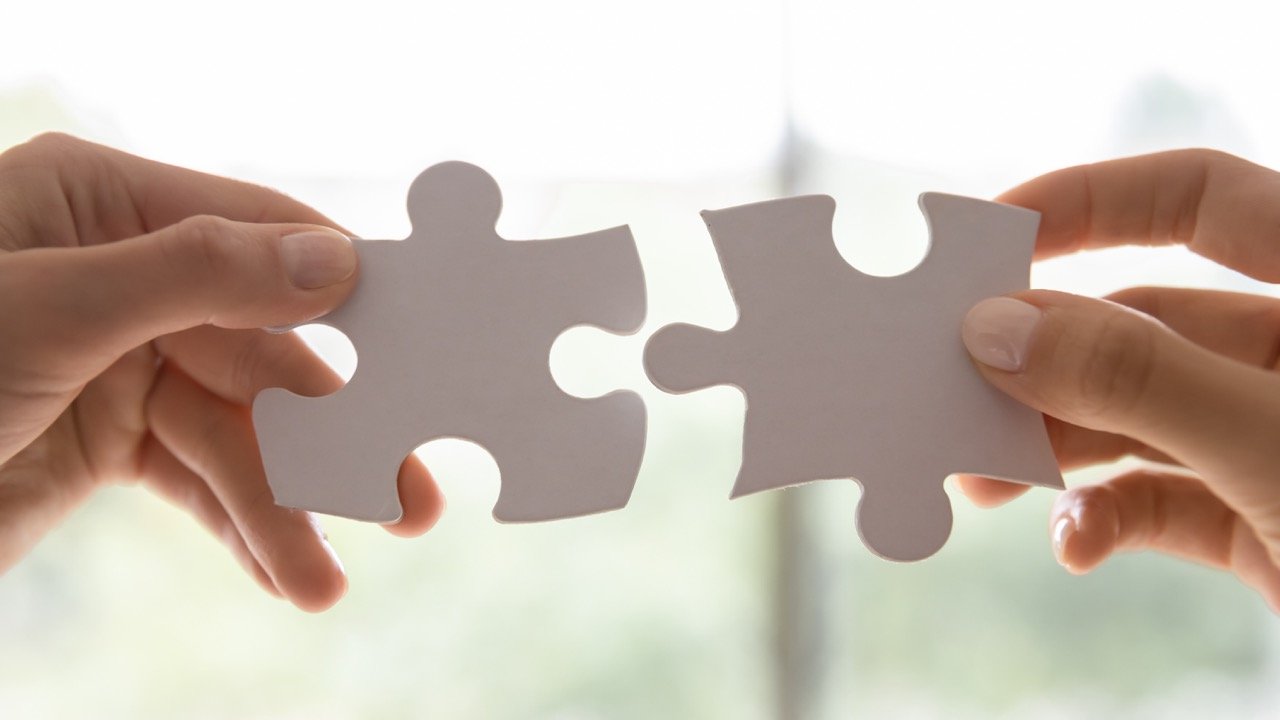
Learn more about attachment and relationships
You Were Never “Too Much”: Healing the Fear of Overwhelming Others
Coaching clients often tell me they’re worried about “being too much” in relationships. So many of us have felt this — an internal voice that tries to keep us small, a quiet reminder not to take up too much space, not to need too much, not to feel too deeply.
That fear of being so whatever that it pushes someone away. This feeling can come from a part of us that fears rejection or abandonment or lack of love. In attachment terms, this part is often linked to an anxious attachment pattern — a protective strategy built around the hope that if we stay agreeable and easy, love will stay too.
How to Spot Red and Green Flags (Without Oversimplifying People)
If you’ve spent any time in the dating or relationship world, you’ve probably seen lists of “red flags” that claim to tell you exactly when to run. Things like: if they don’t text back within an hour, red flag. If they don’t post you on social media, red flag. If they cancel plans twice, red flag.
The problem is, real life is much messier than that. Everyone has stress. Everyone has flaws. Everyone gets it wrong sometimes. If we treated one misstep as a dealbreaker, no relationship would make it past the first month.
Spotting red and green flags isn’t about perfection—it’s about paying attention to patterns over time.
When You’re Self-Aware But Still Anxiously Attached
Have you ever noticed how even after doing a lot of personal work, even after learning about your own relationship patterns, there can still be moments where connection feels confusing?
For people who’ve already done a lot of self-reflection, this can feel frustrating. They understand the pattern, they know what anxious attachment looks like, and they might even catch it happening in the moment.
But that doesn’t always prevent the response from showing up.
What Happens When You Don’t Hear Back (And Why It Feels So Personal for Anxious Attachment Style)
Have you ever noticed how a few hours of waiting for someone to get back to you can feel like a huge rejection, even though objectively they haven’t rejected you?
For people with anxious attachment, these little gaps in communication can bring up a lot of emotion, second guessing, and self-blame.
What Secure Attachment Can Learn from Other Attachment Styles
Secure attachment is easier, but all the styles developed for a good reason. What can secure learn from other attachment styles?
Compatibility in Dating: Why You Don’t Need to Change Who You Are
Compatibility in Dating: Why You Don’t Need to Change Who You Are:
Why emotional unavailability can feel magnetic when you’ve had to work for connection in the past
How anxious attachment can confuse intensity with chemistry
What emotional availability actually looks and feels like in early dating
How to know when you’re over-functioning (and gently shift out of that pattern)
What starts to happen when your system begins trusting healthy, mutual connection
7 Types of Compatibility That Lead to Secure Love
Discover the 7 types of compatibility that actually matter for lasting, secure love. Learn how emotional, mental, and lifestyle compatibility shape healthy relationships, especially if you've struggled with anxious or avoidant patterns in dating.
How to Spot Secure Energy
Have you ever met someone kind, steady, and genuinely available… and felt nothing?
Or maybe they were warm and consistent, and your first thought was:
“Where’s the spark?”
This comes up so often in my work. I can’t tell you how many people have said to me some version of:
“I want something healthy… but I don’t seem to meet people like that when I’m dating, or if I do, I’m not attracted to them.”
Dating a Secure-Leaning Anxious vs. Secure-Leaning Avoidant Partner: What It Really Feels Like
If you tend to lean anxious in relationships—and you’re currently single or navigating the early stages of dating—you’ve probably been told this: date someone secure.
It’s solid advice. But here’s something that rarely gets talked about: not all secure partners feel the same.
How to Pick a Compatible Partner (By Cleaning Your Filter)
Have you ever looked back on someone you dated and thought...
“Why did I think we were such a good match?”
Maybe it made sense on paper.
Maybe the chemistry was strong.
But something still felt off—and now, with a little distance, you can see it more clearly.
How to Fix Your Boundaries When You Have Anxious Attachment
Without boundaries, real connection can’t thrive.
We might hold onto relationships longer, but we won’t feel safe, respected, or deeply supported inside them.
Let’s explore how to shift that.
How to Rewire Your Brain to Attract Secure, Healthy Love
Attraction isn’t random. It’s shaped by past experiences, attachment patterns, and even how your brain has been wired to recognize love.
But here’s the good news: That wiring isn’t set in stone. Attraction can change, and in this post, we’re going to walk through how to rewire your brain to feel more drawn to secure, healthy love.
Triggered? What to Do – For Anxious Attachment
Ever feel that gut-wrenching anxiety when the energy shifts with someone you're dating?
Maybe they used to text you all the time, but now they’re taking hours (or worse… days) to reply. Or they hit you with a vague, “We’ll talk later”—and suddenly, you're spiraling, wondering when exactly “later” is.
If you have an anxious attachment style, these shifts in communication can feel like alarm bells ringing in your brain. It’s not just about a missed text—it’s about the deep fear that you’re being abandoned or that something is wrong.
But here’s the thing: not every change in communication means disaster. And once you understand what’s happening, you can shift from anxiety to calm confidence.
Why You’re Attracted to Emotionally Unavailable Partners
Have you ever been drawn to someone who gave just enough attention to keep you invested—but never fully committed? Maybe they were hot and cold, sent mixed signals, or said all the right things but didn’t follow through in the way you needed.
And even though part of you recognized that something felt off, walking away still felt incredibly difficult.
If this sounds familiar, there are real psychological and emotional reasons why certain people have felt magnetic, even when they weren’t able to provide the love and security you deserved.
Let’s break down why emotionally unavailable partners can feel so compelling—and more importantly, how to shift this pattern so you’re drawn to healthy, secure relationships instead.
Why Secure Partners Feel Boring (And How to Change That)
Have you ever met someone who should be a great partner—kind, consistent, emotionally available—but for some reason, they just don’t feel exciting?
Maybe you tell yourself they’re too nice, there’s no spark, or the chemistry isn’t there. Yet, if past relationships have been filled with anxiety, emotional ups and downs, or unpredictability, that lack of excitement might not mean something is missing—it might mean something is different.
If secure, steady relationships haven’t felt as compelling as the ones that left you guessing, there’s a reason for that. The way your brain and nervous system interpret attraction plays a major role in what feels right—and with awareness and time, that can shift.
Feeling Uncertain? Here’s How to Stay Secure in Early Dating
Early dating can be exciting—new connection, fresh possibilities, all those little moments that make you wonder where this could go.
But excitement alone doesn’t build a secure, fulfilling relationship.
Sometimes, that rush of attraction makes us ignore red flags. Other times, we get so caught up in where we hope things are heading that we stop listening to ourselves.
If you’ve ever found yourself waiting for mixed signals to turn into clarity, brushing aside your own needs to “see where things go,” or doubting your gut when something feels off—you’re not alone. And the good news? You don’t have to stay stuck in that pattern.
What a Secure Relationship Actually Feels Like
Have you ever been in a relationship that just felt... easy?
Not because you never had disagreements, but because—even when you did—you knew you were on the same team.
Where you felt safe to be yourself.
Where you didn’t have to overthink every text, every word, every little shift in energy... because deep down, you knew you were valued, respected, and loved.
That’s what a secure relationship feels like.
And if that doesn’t sound familiar—don’t worry. Secure relationships aren’t just something you find... they’re something you can create.
Misattunements and Anxious Attachment: Turning Emotional Misses into Connection
Have you ever felt like you’re doing everything you can to connect with your partner, but it’s just not landing? Maybe you’re looking for reassurance, and they respond with, “You’re overthinking it,” or you’re hoping for closeness, but they seem to pull away.
Why Does Dating Feel Like a Rollercoaster?
Why Does Dating Feel Like a Rollercoaster?
Have you ever felt like dating is way more complicated than it needs to be? One moment, things are going great—you're laughing, having fun, and imagining all the possibilities. Then suddenly, you're staring at your phone, re-reading their last text (or freaking out because they haven’t replied), and wondering, Did I mess this up?
Somatic Exploration to Transform Anxious Attachment
If you have anxious attachment style and you’re wanting tools to help you shift toward secure, using a somatic or body-based approach is very helpful.
For a lot of people with anxious attachment, it’s common to seek reassurance, love, and validation from a partner, which can sometimes make relationships feel uncertain or stressful. These attachment patterns often start early in life and don’t just affect how we feel emotionally—they also show up in our bodies.
When I was certified as a dynamic attachment practitioner, I learned just how important body awareness is for shifting toward secure attachment, and it was a big part of my own journey toward finding secure love.




















